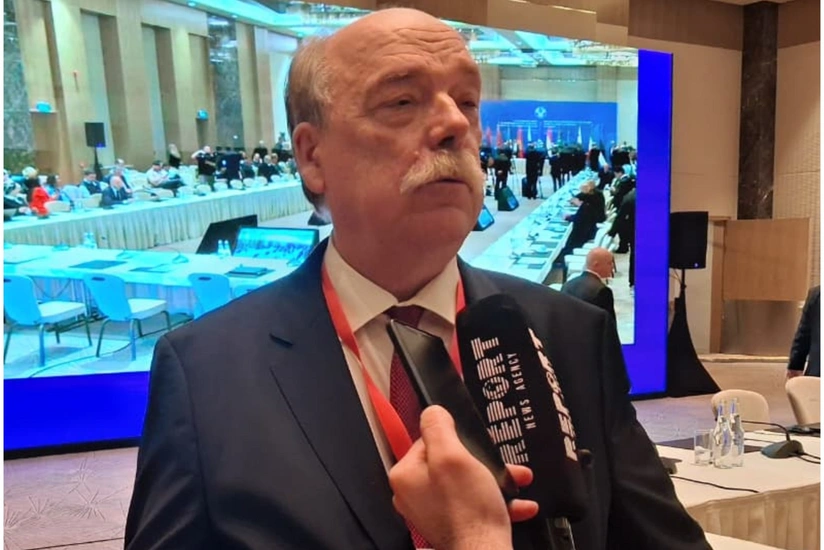Miroslav Antonovich: Azerbaijan is a logistics hub of Eurasia - INTERVIEW
- 26 November, 2025
- 18:59

The 83rd meeting of the Commonwealth of Independent States (CIS) Railway Transport Council was memorable for the in-depth discussion of important topics on the transport agenda of regional countries - especially the increasing freight flows along the Middle Corridor and North-South lines. Within the framework of the meeting, railway administrations of the participating states, international transport organizations, and logistics entities brought forward new challenges and opportunities in optimizing global trade routes, simplifying transit procedures, and expanding multimodal transportation.
For Azerbaijan, located at the intersection of regional transport arteries, these discussions are of particular importance. This is because the increasing trade volumes along both the Middle Corridor and the North-South line further strengthen the country's role as a logistics hub in Eurasia.
During the event, Miroslav Antonovich, Chairman of the Organization for Cooperation between Railways (OSJD), gave an exclusive interview to Report answering questions about the prospects of the Middle Corridor, the increase of Azerbaijan's transit capabilities, as well as the main challenges facing international corridors:
- What are the prospects for freight transportation along the China-Central Asia-Caspian and Azerbaijan line?
- Freight transportation along the Middle Corridor will increase even more in the coming years. This route, connecting China with Central Asia, the Caspian Sea, and Azerbaijan, which is effectively an important hub in the region, creates great opportunities for global trade. Transportation will expand not only along the China-Western Europe line, but also along the Türkiye and Black Sea direction. At the same time, the development of the North-South corridor brings additional dynamism to this process.
- What role does the partnership of Russia and Iran play in this process?
- Both Iran and Azerbaijan are members of our organization, and this cooperation is very important. We have a memorandum and actively participate in the development of joint corridors. Currently, there are 13 different corridors connecting China with Western Europe: via Russia, through Central Asia, as well as the southern corridor along the Iran-Türkiye-Western Europe line.
- How do you assess cooperation with Azerbaijan in the railway sector?
- Azerbaijan is an extremely important country for us, for an organization consisting of 30 Eurasian countries. This is because strategic transit routes pass through its territory.
The International North-South Transport Corridor, the Trans-Caspian International Transport Route (TITR), the East-West corridor, and the multimodal southern line - each of these are key corridors for the development of international trade. These routes play a decisive role not only in trade between China and Europe but also in expanding trade with Russia, Iran, India, and other Asian states.
- What are the main obstacles slowing down the development of these routes?
- Tariffs are already decreasing, but the process is slowing down due to the large number of logistics operations. Loading onto ships, then transferring cargo back to rail, ensuring uninterrupted movement in the Black Sea direction - all these are time-consuming stages. For this reason, we consider it necessary to apply tools such as harmonization of tariff and customs documents, single window system, and unified transport document.
- How do you see the future prospects of these corridors?
- If harmonization in documentation and tariff policy is ensured, trade flows in the region will develop at a higher rate. Azerbaijan's role in this process remains decisive.
